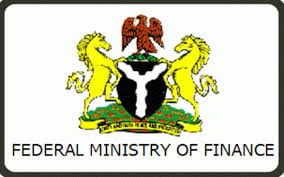While featuring on Channels Television’s ‘Business Morning’ programme, former Deputy Governor of the Central Bank of Nigeria, Tunde Lemo listed infrastructure decay, insecurity, poor ease of doing business amongst other factors that make foreign investors to opt for Ghana and not Nigeria.
According to him, Nigeria’s infrastructure is in decay and it has very seriously impacted negative on its economy.
Citing textile industry as an example, he said, “When we had independence, the first 10 years, the Chinese and the Indians came here and set up textile companies.
“At the peak, we had over 170 textile companies but today, all of them have folded up, only six or seven are in operation, albeit marginally.
READ ALSO: Lagos govt. disburses pension benefits worth N1.3 billion to 291 retirees
“The reason is because the infrastructure in those climes is much better than what we have now. So, we need to free up resources beyond what government can do, and then harvest all of these and put aggressively into revamping our infrastructure.”
Continuing, he stated that the ease of doing business in Nigeria has improved by one or two notches but again we are not as competitive as our comparators in Africa. By his assessment, Nigeria is still far behind Ghana, Egypt and Kenya.
He said, “Some of the regional economic activities that are happening, you will be surprised that even Ghana is a better destination for foreign investors than Nigeria.
“Yes, we (Nigeria) pride in saying we have improved on ease of doing business but if you are improving from number 90 something to number 70 something and our peers are on number 4, 5, 6, then you know that we still have a long way to go.
“We need to ensure that the public sector units and agencies that are involved actually become much more efficient. Let look at the best three countries in Africa and give ourselves a target.
“The global economy is becoming more competitive and everybody is trying to improve efficiency to access global capital.
“Apart from that, government needs to work more on security of lives and property. Unfortunately, we’ve had it so rough in the past two years and I want to appeal to political authorities, let’s have a bi-partisan approach; let’s all sit down and see what we can do.
“Today, the entire Middle Belt is becoming problematic and this is the Belt that produces food, no wonder we have food inflation that is around 21 per cent.
“All the things underpinning stable macro-economic environment which is monetary stability, responsible fiscal financing and so on are the areas we need to work upon so that we can create the right economic environment.”
Lemo also stated that Nigeria needs a robust reserve buffer other than the $34bn reserve that the country currently has, adding that the way out is to block the leakages
While lamenting that the debt stock of Nigeria is very high, he said: “We have humongous debt capital in Nigeria which is estimated at around $900bn, about twice the size of our GDP. We should begin to see how we sell assets, reduce our debt stocks and then free up money to be able to do.”
The ex-bank chief noted that there is nothing to celebrate about the “marginal” drop compared to countries like the United Kingdom with an inflation rate of about 4% in years.

